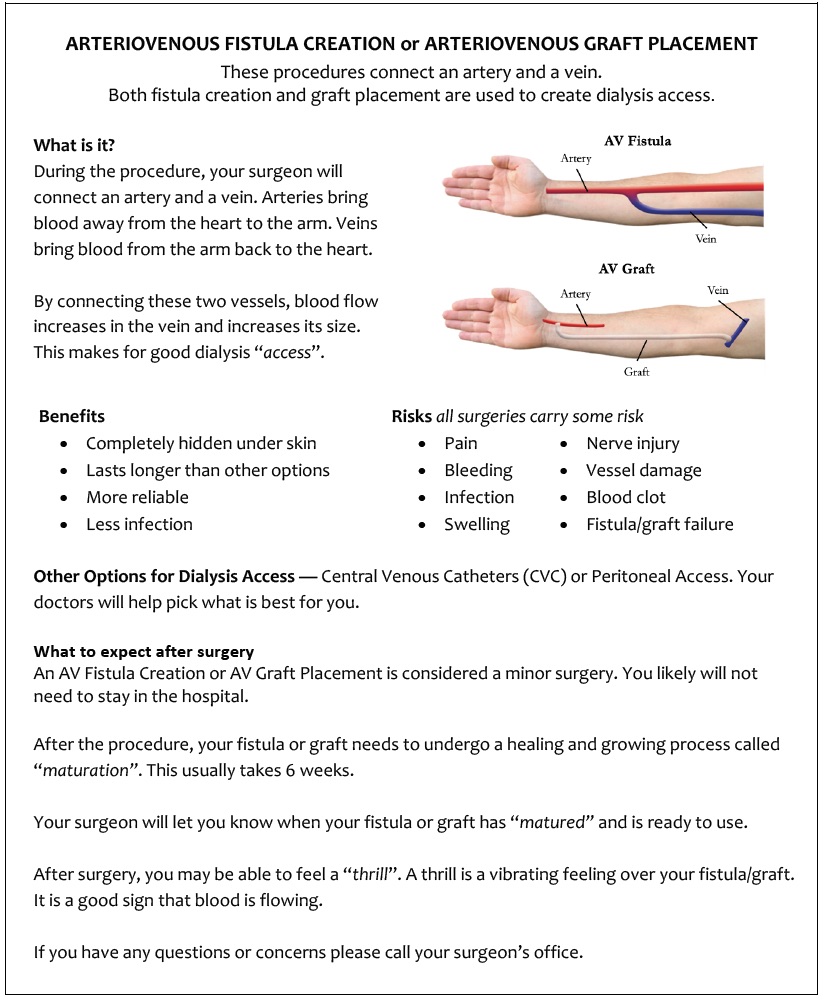Increasing Satisfaction And Understanding In Arteriovenous Fistula And Graft Patients Through An Improved Preoperative Patient Education Model: A Pilot Study
Christina M. Stuart, BS, Nicholas B. Safian, BA, David B. Ney, BA, Paul J. Dimuzio, MD FACS, Dawn M. Salvatore, MD FACS.
Thomas Jefferson University Hospital, Philadelphia, PA, USA.
OBJECTIVES: Current preoperative educational materials often do not contain the basic information necessary to properly inform patients about their procedure and may be written at a reading level too advanced for many patients to understand. Improving health literacy through improved patient preoperative educational materials may increase patient satisfaction and outcome. This ongoing pilot study seeks to determine the effects of a more engaging and readable preoperative educational model on satisfaction and understanding in arteriovenous fistula and graft patients.
METHODS: A new preoperative educational model (Figure 1) was designed and assessed to be at the fifth grade reading level using Flesh-Kinkaid scoring. A small, randomized control study (n=20) assessing satisfaction and understanding when using the new model compared with current preoperative educational materials is ongoing (end date October 1, 2019). Participants are being surveyed to assess satisfaction, understanding, and anxiety surrounding the procedure using 5-point Likert scaling. Experimental versus control group responses will be compared using appropriate statistical testing to assess for a significant difference amongst groups.

RESULTS: Thus far, results indicate that patients prefer written information when receiving preoperative education. However, patients in the control group rate the current quality of such information as poor (specific deficits in “alternatives to surgery, “expectations for surgery”, “expectations after surgery”). Data collection from the experimental group is ongoing. Results trend toward a higher satisfaction with the new preoperative educational model compared to the control group (specifically, improved satisfaction of “explanations of procedure” and “expectations after surgery”). Results from the experimental group also trend toward patients reporting increased overall satisfaction and decreased anxiety associated with their procedure compared to patients who received the current preoperative educational materials. Complete data will be available October 1, 2019.
CONCLUSIONS: Literature review and preliminary data from this ongoing study suggest the value of providing more comprehensible preoperative educational materials to patients undergoing AV fistula/graft placement. These findings provide an opportunity to further validate this model of preoperative patient education for AV fistula/graft patients, and they expose a broader need to apply these concepts of improved clarity in preoperative educational materials to other surgical procedures.
Back to 2020 ePosters
